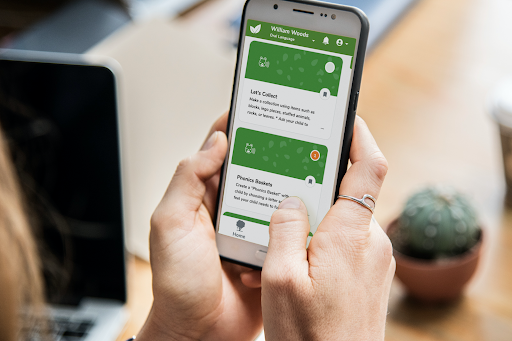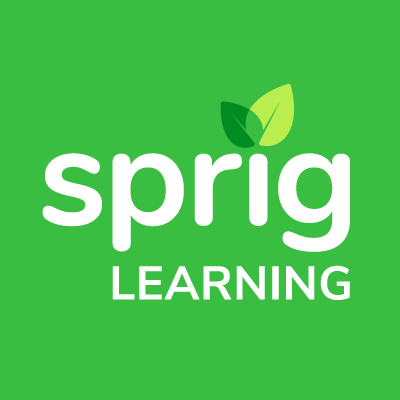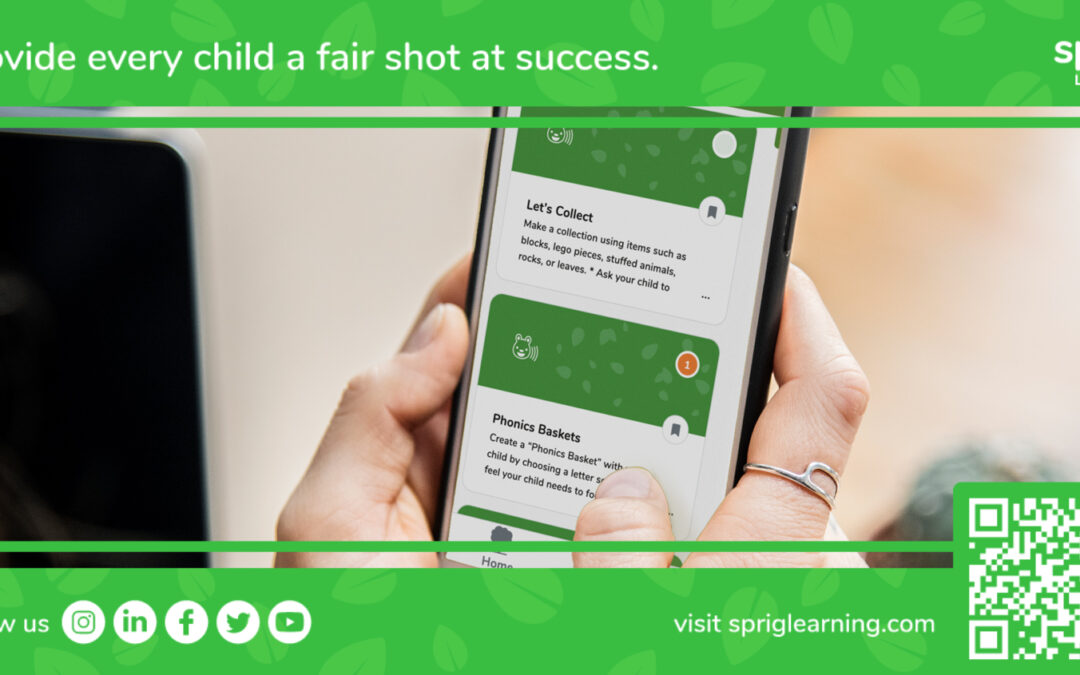It is Parental Involvement Day!
It is an annual occasion for schools, which falls on the third Thursday of every November, to celebrate the impactful contributions of parents to support student success.
Of course, such a great initiative should be taking place year long, and not confined to any one day.
Sprig Learning has previously covered this all-important topic of parental involvement. In this special occasion, as a follow-up to the previous blog, four additional ways will be explored in which parents can actively engage in their child’s early literacy journey.
If you have not read the first one, please be sure to do so, as it is one of our most popular blogs.
It explains the difference between parent engagement and parental involvement, covers 4 categories of parental involvement, and highlights their benefits.
This second blog of the parental involvement series is geared more towards early literacy. It covers more specific acts of parental involvement.
Parenting is a balancing act, and in the realm of early childhood education, every bit of support matters.
So then, let’s see four more ways in which parents can lend their support in early childhood education, especially to the cause of early literacy success.
1. Read Together

It’s important to encourage a love for reading by making it a shared experience.
Reading together fosters a strong bond and helps develop language skills.
A variety of books can be explored, from picture books to early readers, where stories can be discussed together.
This simple yet impactful activity can lay the foundation for a lifelong appreciation of literature.
Bonding Through Narratives
Reading together fosters emotional bonds. There is research available to show that shared book-reading promotes secure parent-child attachments.
Language Development
Shared reading exposes children to a broader vocabulary, enhancing their language skills.
Research by the American Academy of Pediatrics indicates that early exposure to language-rich environments positively influences a child’s language development.
2. Create a Literacy-Rich Environment

A literacy-rich environment can be created in homes by incorporating books, labels, and print materials.
A designated reading nook or corner can be established where your child can explore books independently.
This type of literacy environment increases awareness of print concepts among young learners, and fosters curiosity and exploration.
Print Awareness
A literacy-rich environment cultivates print awareness as well—the understanding of print in the child’s surroundings.
The National Early Literacy Panel emphasizes the role of print awareness in early literacy development. It is one of the foundational reading skills.
Curiosity and Exploration
Surrounding a child with books stimulates curiosity.
According to research published in the Journal of Research in Reading, children in print-rich environments show increased interest in reading and exploration.
3. Engage in Interactive Learning Apps

The power of technology to support early literacy should be harnessed.
Engaging activities aligned with the school curriculum are provided by many apps, allowing parents to actively participate in their child’s educational journey.
Foundational literacy skills can be enhanced in a fun and accessible way through interactive learning apps.
Engaging with learning apps promotes technology integration and active learning.
Technology Integration
Leveraging educational apps aligns with the evolving technological landscape.
There are guiding documents published by the Office of Educational Technology in the US, which suggest that technology-based interventions positively impact early literacy skills.
Active Learning
Interactive apps encourage active engagement by children, contributing to effective learning.
Play-based learning, whether through classroom center-based activities or by use of technology, is helpful in grasping important early learning concepts.
A report by the Joan Ganz Cooney Center stresses the benefits of interactive media in promoting children’s cognitive skills.
4. Partner with Teachers for Collaborative Learning

Beyond mere communication, collaborative learning with teachers must be actively pursued.
It’s crucial to work together to understand the curriculum, discuss effective teaching strategies, and explore ways to reinforce classroom lessons at home.
A cohesive learning experience for the child is created through this collaborative approach, bridging the gap between home and school.
Such a partnership ensures that there is holistic learning support and personalized instruction for every child.
Holistic Learning Support
Collaborating with teachers creates a holistic learning support system.
Teachers benefit from understanding what learning opportunities are provided at home, and how to better support the student when they are not at school.
There is plenty of research that emphasizes that parental involvement in education contributes to a child’s academic success and overall well-being.
Personalized Instruction
Partnering with teachers allows for personalized instruction.
With the viewpoint of learning at home, more insights about a child’s strengths, needs and interests emerge.
It allows teachers to better differentiate instruction for that student, whether that be in small groups, or individually.
A study in the Journal of School Effectiveness and School Improvement emphasizes the positive impact of collaborative learning on student outcomes.
Parental Involvement is Crucial for Early Literacy

In conclusion, these four evidence-based actions for parental involvement are highly recommended for parents navigating their child’s early literacy journey.
By embracing these involvement types, parents actively contribute to a child’s cognitive and emotional development, laying the groundwork for a lifelong love of learning.
Upon close observation, these actions are also best-practices inside the classroom.
Shared reading, literacy-rich classrooms, technology use and collaboration with other roles are hallmarks of modern schools looking to improve early literacy.
When parents also do these four things, their level of involvement skyrockets, making a tremendous difference to their child’s education!

